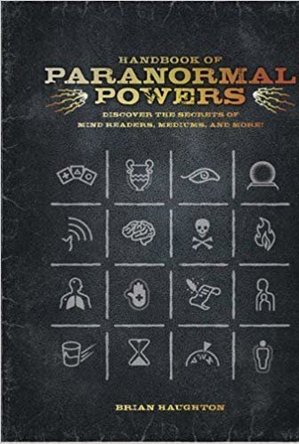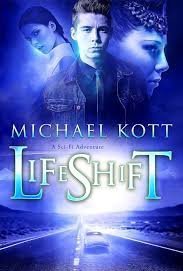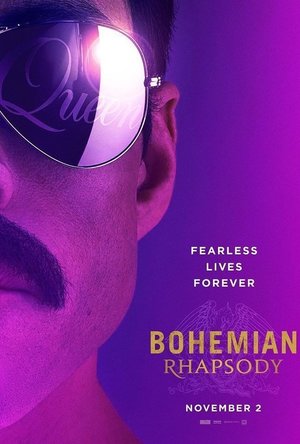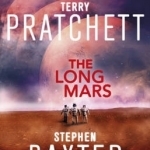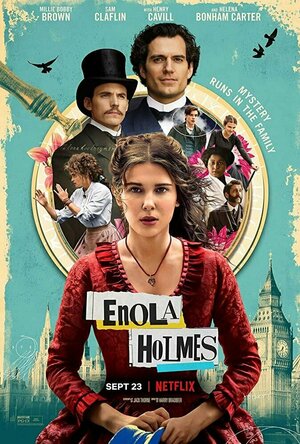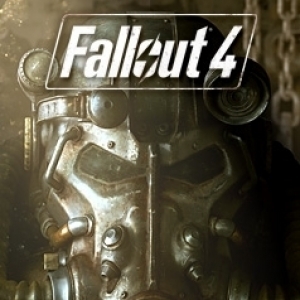Search
Search results

Campus Society – Student App
Education and Social Networking
App
Download the leading student app to join your course channel and see what’s going on at your...

Learn Chinese-Hello HSK 4
Education and Business
App
Learn mandarin Chinese-Hello HSK 4 provides HSK words, listening, reading, spoken Chinese and...
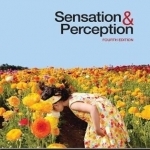
Sensation and Perception
Jeremy M Wolfe, Keith R Kluender, Dennis M Levi and Linda M Bartoshuk
Book
Sensation & Perception, Fourth Edition, introduces students to their own senses. Human sensory and...
Hadley (567 KP) rated Handbook of Paranormal Powers in Books
Jun 2, 2019
I have always believed in the paranormal, but I am careful not to take everything at face value. When I picked up this book, I unfortunately took it at its face value, thinking that it was about how people developed these paranormal abilities and the things that they achieved with them.
But this book seems to have been written by a skeptic that disguised it as a book from a believer in the paranormal, which to say is a pretty clever way to sell a book when the belief in the paranormal is at an all time high. The author spends much of the book detailing people who have exhibited paranormal abilities just to quickly tear them down. I will say that Brian Haughton did a wonderful job on researching for this book, bringing up not only the history of paranormal abilities, but also self proclaimed psychics that readers may not have even heard of, such as Florence Cook, who had her abilities tested by none other than William Crookes( the discoverer of the element thallium).
Haughton's 'Handbook of Paranormal Powers' should have been titled something else, mostly because it's a history lesson in ESP and also, obviously, from the point-of-view of a skeptic. Yet, it doesn't lack for reading by believers; one such part I found interesting was a part on dowsing- the supernatural ability to find hidden objects, substances, geographic features, or sometimes even people- which you may have seen someone doing by holding two rods to find underground water. This part was about when dowsing became popular in the seventeenth-century France, and was being considered 'evil': ". . .with the dowser Baroness de Beausoleil and her husband, a mining expert, journeying across Europe and allegedly locating ore deposits of iron, gold, and silver. The couple established a thriving mineral company, but when their methods of locating metal ores became known they were accused of practicing the 'black arts' and imprisoned for the rest of their lives. " Readers learn that it wasn't until the nineteenth century, with the rise of spiritualism, that dowsing was no longer considered 'evil.'
Another one that interested me concerned the comedian Andy Kaufman, and his pursuit to rid himself of a rare lung cancer with psychic healing: "In March 1984, US comedian Andy Kaufman traveled to the Philippines for a six- week course of psychic surgery after being diagnosed with a rare lung cancer. The surgeon, Jun Labo, performed the operation, and claimed that he had removed large cancerous tumors from Kaufman's body. On May 16, 1984, Kaufman died from renal failure as a consequence of a metastatic lung cancer. "
I hate, but also love this book, not because Haughton backs up all of the skeptic claims with scientific research and tests, but because he claimed this to be a handbook or paranormal powers. If you glance at the cover, just below the title is: 'discover the secrets of mind readers, mediums, and more' - this can be taken that it's written by someone who believes in the paranormal, as well as someone who may have had personal experiences with the unknown, but with that said, I did learn a lot about the history of paranormal powers as well as people I had never heard of.
To prove the skepticism in Haughton's writing, we can turn to page 173, where he writes about how to test whether or not a self-proclaimed psychic surgeon is real. But even before this page and throughout this book, Haughton explains someone doing an extraordinary thing only to quickly explain away why it was fake to begin with. The 'Handbook of Paranormal Powers' reads a lot like a college thesis, that I found myself getting bored with the matter-of-fact tone. Some readers may enjoy reading essay-type books, but for me, it becomes repetitive enough that I don't remember much of the information I had just read.
Also, readers may come away with the feeling that Haughton doesn't care about the slight chance that some paranormal powers may be real, but instead he'd rather read about the scientific facts. I would only recommend this book to people who want to do a light reading on paranormal history, meaning mostly what made headlines in the news. For believers, I would suggest you go elsewhere.
But this book seems to have been written by a skeptic that disguised it as a book from a believer in the paranormal, which to say is a pretty clever way to sell a book when the belief in the paranormal is at an all time high. The author spends much of the book detailing people who have exhibited paranormal abilities just to quickly tear them down. I will say that Brian Haughton did a wonderful job on researching for this book, bringing up not only the history of paranormal abilities, but also self proclaimed psychics that readers may not have even heard of, such as Florence Cook, who had her abilities tested by none other than William Crookes( the discoverer of the element thallium).
Haughton's 'Handbook of Paranormal Powers' should have been titled something else, mostly because it's a history lesson in ESP and also, obviously, from the point-of-view of a skeptic. Yet, it doesn't lack for reading by believers; one such part I found interesting was a part on dowsing- the supernatural ability to find hidden objects, substances, geographic features, or sometimes even people- which you may have seen someone doing by holding two rods to find underground water. This part was about when dowsing became popular in the seventeenth-century France, and was being considered 'evil': ". . .with the dowser Baroness de Beausoleil and her husband, a mining expert, journeying across Europe and allegedly locating ore deposits of iron, gold, and silver. The couple established a thriving mineral company, but when their methods of locating metal ores became known they were accused of practicing the 'black arts' and imprisoned for the rest of their lives. " Readers learn that it wasn't until the nineteenth century, with the rise of spiritualism, that dowsing was no longer considered 'evil.'
Another one that interested me concerned the comedian Andy Kaufman, and his pursuit to rid himself of a rare lung cancer with psychic healing: "In March 1984, US comedian Andy Kaufman traveled to the Philippines for a six- week course of psychic surgery after being diagnosed with a rare lung cancer. The surgeon, Jun Labo, performed the operation, and claimed that he had removed large cancerous tumors from Kaufman's body. On May 16, 1984, Kaufman died from renal failure as a consequence of a metastatic lung cancer. "
I hate, but also love this book, not because Haughton backs up all of the skeptic claims with scientific research and tests, but because he claimed this to be a handbook or paranormal powers. If you glance at the cover, just below the title is: 'discover the secrets of mind readers, mediums, and more' - this can be taken that it's written by someone who believes in the paranormal, as well as someone who may have had personal experiences with the unknown, but with that said, I did learn a lot about the history of paranormal powers as well as people I had never heard of.
To prove the skepticism in Haughton's writing, we can turn to page 173, where he writes about how to test whether or not a self-proclaimed psychic surgeon is real. But even before this page and throughout this book, Haughton explains someone doing an extraordinary thing only to quickly explain away why it was fake to begin with. The 'Handbook of Paranormal Powers' reads a lot like a college thesis, that I found myself getting bored with the matter-of-fact tone. Some readers may enjoy reading essay-type books, but for me, it becomes repetitive enough that I don't remember much of the information I had just read.
Also, readers may come away with the feeling that Haughton doesn't care about the slight chance that some paranormal powers may be real, but instead he'd rather read about the scientific facts. I would only recommend this book to people who want to do a light reading on paranormal history, meaning mostly what made headlines in the news. For believers, I would suggest you go elsewhere.
Ivana A. | Diary of Difference (1171 KP) rated LifeShift in Books
Sep 13, 2018
www.diaryofdifference.com
Things can change in a moment. All it takes it that tiny second that can turn our lives upside down. This happened to Alex. See, one day, he is just this unpopular boy that goes to school, and works to earn a little something for himself. Then, in one little moment, he is about to be hit by a train. Only - a miracle happens and he remains alive. But something changed. No, EVERYTHING changed. A new girl comes to school the next morning and tells him he is an Eternal, just like her, a person that lives many lives and keeps getting reborn. He is also supposed to remember his past lives once he turns 18. And not only that, but he also needs to go on a mission to find another Eternal, that would lead them to Zeus.
Bonus: This book is filled with Greek Mythology characters, but they are not the Greek Gods as we know them - they are all Eternals and have a special new fictional story.
I know some of you guys messaged me that the synopsis of the book looked so complicated, and it put you off. The story is actually quite interesting and easy to understand, once you start reading it. So go on, and put this on your TBRs!
The story and the plot itself are so unique - I haven’t read anything like this before. Michael managed to recreate a whole new world, and new type of creatures - Eternals. I loved the idea of the Eternals - people that have many lives and remember their previous lives. They can even choose where they want to get born next, and how to look. I also loved the superpowers they have - communicating through thoughts and dreams, healing, reading the past of a person by touching their hand… However, in many places in the book this was described too fast and too wide - there would be 5 pages of an essay of only description. I would much prefer if we could explore the story and history through the characters more.
The characters were likable. All of them. I liked Alex - he was a typical American boy. Sometimes a bit oblivious to everything happening around him. I found it a bit upsetting how he couldn’t choose who he wanted to be with. But on the other side, I quite admired him for how he coped when his world just changed in an instant, and so many people he knew were not what he thought they were, and on top of that he had to choose who to trust and who not to, and he had to agree to go on a mission that risks his life, even though he still couldn’t remember if he was an Eternal, which meant that maybe he is not like them at all.
Circe was an interesting character too. Such an energetic person with a wild personality - she would be the one that brightens up a room as soon as she walks into it. She can also be very possessive of the people she loves. She quite reminds me of myself in my teenage years in everything she did - funny, reckless moments - all worth remembering. Even though I couldn’t find a favourite character, all the people we meet in the book were equally loved by me.
This is an amazing story - a fiction fantasy that gathered Greek Mythology characters and created something entirely new. I enjoyed it a lot and I can’t wait for the next book of the series to come out. This book opens up a great discussion about people that can be reborn and remember their past. My view on life is that once we die, our soul goes into another body that gets born in the exact same moment, and even though we don’t remember it, we always carry a piece of that inside our hearts. There are occasions though, where some people remember their past lives.
What are your thoughts about life after death? Would you maybe pick this book up?
A special thank you to the author, Michael Kott, who send me a copy of LifeShift in exchange for an honest review. All my thoughts are my own, and completely unbiased.
Things can change in a moment. All it takes it that tiny second that can turn our lives upside down. This happened to Alex. See, one day, he is just this unpopular boy that goes to school, and works to earn a little something for himself. Then, in one little moment, he is about to be hit by a train. Only - a miracle happens and he remains alive. But something changed. No, EVERYTHING changed. A new girl comes to school the next morning and tells him he is an Eternal, just like her, a person that lives many lives and keeps getting reborn. He is also supposed to remember his past lives once he turns 18. And not only that, but he also needs to go on a mission to find another Eternal, that would lead them to Zeus.
Bonus: This book is filled with Greek Mythology characters, but they are not the Greek Gods as we know them - they are all Eternals and have a special new fictional story.
I know some of you guys messaged me that the synopsis of the book looked so complicated, and it put you off. The story is actually quite interesting and easy to understand, once you start reading it. So go on, and put this on your TBRs!
The story and the plot itself are so unique - I haven’t read anything like this before. Michael managed to recreate a whole new world, and new type of creatures - Eternals. I loved the idea of the Eternals - people that have many lives and remember their previous lives. They can even choose where they want to get born next, and how to look. I also loved the superpowers they have - communicating through thoughts and dreams, healing, reading the past of a person by touching their hand… However, in many places in the book this was described too fast and too wide - there would be 5 pages of an essay of only description. I would much prefer if we could explore the story and history through the characters more.
The characters were likable. All of them. I liked Alex - he was a typical American boy. Sometimes a bit oblivious to everything happening around him. I found it a bit upsetting how he couldn’t choose who he wanted to be with. But on the other side, I quite admired him for how he coped when his world just changed in an instant, and so many people he knew were not what he thought they were, and on top of that he had to choose who to trust and who not to, and he had to agree to go on a mission that risks his life, even though he still couldn’t remember if he was an Eternal, which meant that maybe he is not like them at all.
Circe was an interesting character too. Such an energetic person with a wild personality - she would be the one that brightens up a room as soon as she walks into it. She can also be very possessive of the people she loves. She quite reminds me of myself in my teenage years in everything she did - funny, reckless moments - all worth remembering. Even though I couldn’t find a favourite character, all the people we meet in the book were equally loved by me.
This is an amazing story - a fiction fantasy that gathered Greek Mythology characters and created something entirely new. I enjoyed it a lot and I can’t wait for the next book of the series to come out. This book opens up a great discussion about people that can be reborn and remember their past. My view on life is that once we die, our soul goes into another body that gets born in the exact same moment, and even though we don’t remember it, we always carry a piece of that inside our hearts. There are occasions though, where some people remember their past lives.
What are your thoughts about life after death? Would you maybe pick this book up?
A special thank you to the author, Michael Kott, who send me a copy of LifeShift in exchange for an honest review. All my thoughts are my own, and completely unbiased.
Lucy Buglass (45 KP) rated Bohemian Rhapsody (2018) in Movies
Jun 20, 2019
An honest, captivating and respectful biopic
Biopics are not easy to perfect and when you’re dealing with an iconic figure such as Freddie Mercury, it becomes even harder. When this film was announced it seemed natural to feel a little bit of apprehension, because could anyone really portray Freddie? Who could bring him to life on screen before thousands of fans? Thankfully, for me at least, my worries were soon quenched as soon as I began to watch it. I thought was a stunning film and I have no problem admitting that brought tears to my eyes on several occasions.
Rami Malek was an excellent choice to portray Freddie, to the point where I found myself believing I was watching the man himself. His stage presence especially was spot on and the live performances were simply stunning to watch, especially with surround sound. I felt transported, part of the crowd, and it was such a special moment to share with the rest of the cinema. We become part of different times and places in a matter of minutes, giving you an idea of just how globally successful and adored Queen were. Despite the film’s main focus being Freddie, the supporting roles of the rest of the band were fantastic too, and I have so much praise for Gwilym Lee, Ben Hardy and Joseph Mazzello for their performances.
Freddie dealt with a lot of discrimination during his career, particularly due to his race, sexuality and flamboyant personality. The film chose to portray these issues honestly, because pretending they didn’t exist would be an insult. When Freddie first starts performing with the rest of Queen, he’s greeted with questions such as “Who’s the P***?”, which for a modern audience is a terrible racial slur that I don’t even feel comfortable writing here. But for a Indian-British Parsi musician performing to a largely white audience in the ’70s, this word would have been used a lot. I feel it was important for the filmmakers to shed light on this as it provides context into Freddie’s upbringing and life that some may not have known about, including his real name: Farrokh Bulsara.
In terms of his sexuality, the film uses the role of the press to exploit and make a big deal about his personal relationships. The press conference scene was particularly uncomfortable as he’s bombarded with inappropriate questions instead of focusing on Queen and their music. He was constantly criticised in papers and magazines for simply being himself, and that’s a heartbreaking truth that Bohemian Rhapsody really hammers home. His long-term relationship with Mary Austin is also focused on throughout, and how that broke down but they still remained in touch. It’s a complex part of his life that the film does well to explore in just over 2 hours.
It’s not all bleak, and although these dark truths are explored, the film is fundamentally a celebration of Freddie’s life and extraordinary talent. Several Queen songs are present throughout the film and we even see the writing process behind some of them, my favourite being the creation of We Will Rock You in which they wanted the audience to play along with them through stomps and claps. The birth of Bohemian Rhapsody is comical in nature and received a lot of backlash at the time, but as we know, has since gone on to become an iconic song we all know the lyrics to.
Even in Freddie’s final days, after he was diagnosed with AIDS, the film encourages us to celebrate their music and make the most of the time Freddie has left, which is exactly what he himself wanted to do. I can’t think of a more respectful and considerate way to show it than that.
I could probably write an entire essay about just how much I thought Bohemian Rhapsody got right, but hopefully I’ve managed to condense my thoughts somewhat. This is a film you simply must experience for yourself, at least once.
https://lucygoestohollywood.com/2018/11/14/bohemian-rhapsody-an-honest-captivating-and-respectful-biopic/
Rami Malek was an excellent choice to portray Freddie, to the point where I found myself believing I was watching the man himself. His stage presence especially was spot on and the live performances were simply stunning to watch, especially with surround sound. I felt transported, part of the crowd, and it was such a special moment to share with the rest of the cinema. We become part of different times and places in a matter of minutes, giving you an idea of just how globally successful and adored Queen were. Despite the film’s main focus being Freddie, the supporting roles of the rest of the band were fantastic too, and I have so much praise for Gwilym Lee, Ben Hardy and Joseph Mazzello for their performances.
Freddie dealt with a lot of discrimination during his career, particularly due to his race, sexuality and flamboyant personality. The film chose to portray these issues honestly, because pretending they didn’t exist would be an insult. When Freddie first starts performing with the rest of Queen, he’s greeted with questions such as “Who’s the P***?”, which for a modern audience is a terrible racial slur that I don’t even feel comfortable writing here. But for a Indian-British Parsi musician performing to a largely white audience in the ’70s, this word would have been used a lot. I feel it was important for the filmmakers to shed light on this as it provides context into Freddie’s upbringing and life that some may not have known about, including his real name: Farrokh Bulsara.
In terms of his sexuality, the film uses the role of the press to exploit and make a big deal about his personal relationships. The press conference scene was particularly uncomfortable as he’s bombarded with inappropriate questions instead of focusing on Queen and their music. He was constantly criticised in papers and magazines for simply being himself, and that’s a heartbreaking truth that Bohemian Rhapsody really hammers home. His long-term relationship with Mary Austin is also focused on throughout, and how that broke down but they still remained in touch. It’s a complex part of his life that the film does well to explore in just over 2 hours.
It’s not all bleak, and although these dark truths are explored, the film is fundamentally a celebration of Freddie’s life and extraordinary talent. Several Queen songs are present throughout the film and we even see the writing process behind some of them, my favourite being the creation of We Will Rock You in which they wanted the audience to play along with them through stomps and claps. The birth of Bohemian Rhapsody is comical in nature and received a lot of backlash at the time, but as we know, has since gone on to become an iconic song we all know the lyrics to.
Even in Freddie’s final days, after he was diagnosed with AIDS, the film encourages us to celebrate their music and make the most of the time Freddie has left, which is exactly what he himself wanted to do. I can’t think of a more respectful and considerate way to show it than that.
I could probably write an entire essay about just how much I thought Bohemian Rhapsody got right, but hopefully I’ve managed to condense my thoughts somewhat. This is a film you simply must experience for yourself, at least once.
https://lucygoestohollywood.com/2018/11/14/bohemian-rhapsody-an-honest-captivating-and-respectful-biopic/
Phil Leader (619 KP) rated The Long Mars in Books
Nov 20, 2019
The third book in the Long Earth series by Terry Pratchett and Stephen Baxter very much carries on with 'more of the same' as the previous books. Therefore if you haven't liked the series up until now, you probably won't like this installment.
The usual characters are here. Lobsang is less in evidence than previously, despite driving what is the core of the book. Joshua is also a little sidelined as his story is tied closely to that of Lobsang. The bulk of the actual pages are concerned with Sally Lindsay and Maggie Kaufmann as they set off on their own voyages of discovery on the seemingly infinite copies of Earth and - not too much of a spoiler since it's in the title - Mars.
Whereas the previous books have essentially had one thread of a story around which the characters revolve towards some sort of end. This book seems more as if the authors couldn't really decide what they wanted to write about.
Should they write about more versions of the Long Earth, more fantastic worlds and lifeforms? Or perhaps investigate what has really been happening at Happy Landings, the seemingly too perfect town which existed long before Step Day? Or perhaps you are Stephen Baxter and can't resist going to Mars and showing many stepwise possibilities for that planet?
Rather than focus on one of these, all three are covered.
Maggie Kaufmann takes a brand new Twain far beyond the current limits of exploration into completely uncharted - and very strange - worlds. She must deal with the crew during their long trip, a surprise guest and aims to find out what happened to a previous expedition that vanished. Once again Pratchett and Baxter dig up some potentially different outcomes for both life on Earth and the planet itself, although many of the worlds are skimmed over and this part does get a little repetitive - another world, another odd ecology. This thread did feel a little like filler, there for those who want to see what might happen at the extremes of the Long Earth, although events do tie in with Lobsang's story.
Lobsang (the omnipresent super computer) has become concerned with matters of existence and what might come after. In particular is the human race evolving? He asks Joshua to help out and discover if there is any evidence for a breed of super human evolving as Lobsang theorises there must be. It seemed to me this is the real story of the book, a query on what would happen if a vastly more intelligent form of humanity evolved as a step change rather than a gradual one. What would they do? Would the rest of humanity accept them or feel threatened by them? The thread is short - barely more than an essay - and takes a good while to work through but provides the ultimate ending to the book.
Meanwhile, Sally Lindsay finds herself at The Gap, preparing to visit Mars, part of some mysterious quest for 'something' by her father. Here Baxter's history of writing Mars colonisation stories (they even get a mention) comes to the fore as the possibilities of a Long Mars are explored. In the real world Mars is cold, arid and inhospitable but there may be the odd chance for life to have developed. What would this be like? Again we have many different worlds although these are skipped through a little better than the Maggie Kaufmann Long Earth voyage and seem a little less repetitive - or where there is repetition it is more interesting than mundane.
Overall this is a good read in the series, probably a little better than The Long War but again lacking the coherence and sheer enthusiasm of The Long Earth (perhaps inevitably). As a work of science fiction it works well - the broad brush 'imaginary worlds' of the Long Earth and the Long Mars juxtaposed by the more existential investigation into human evolution.
Would I read a fourth installment? Undoubtedly, there are stories yet to be told. Would I recommend this book? Only if the recommendee had enjoyed the previous two books.
The usual characters are here. Lobsang is less in evidence than previously, despite driving what is the core of the book. Joshua is also a little sidelined as his story is tied closely to that of Lobsang. The bulk of the actual pages are concerned with Sally Lindsay and Maggie Kaufmann as they set off on their own voyages of discovery on the seemingly infinite copies of Earth and - not too much of a spoiler since it's in the title - Mars.
Whereas the previous books have essentially had one thread of a story around which the characters revolve towards some sort of end. This book seems more as if the authors couldn't really decide what they wanted to write about.
Should they write about more versions of the Long Earth, more fantastic worlds and lifeforms? Or perhaps investigate what has really been happening at Happy Landings, the seemingly too perfect town which existed long before Step Day? Or perhaps you are Stephen Baxter and can't resist going to Mars and showing many stepwise possibilities for that planet?
Rather than focus on one of these, all three are covered.
Maggie Kaufmann takes a brand new Twain far beyond the current limits of exploration into completely uncharted - and very strange - worlds. She must deal with the crew during their long trip, a surprise guest and aims to find out what happened to a previous expedition that vanished. Once again Pratchett and Baxter dig up some potentially different outcomes for both life on Earth and the planet itself, although many of the worlds are skimmed over and this part does get a little repetitive - another world, another odd ecology. This thread did feel a little like filler, there for those who want to see what might happen at the extremes of the Long Earth, although events do tie in with Lobsang's story.
Lobsang (the omnipresent super computer) has become concerned with matters of existence and what might come after. In particular is the human race evolving? He asks Joshua to help out and discover if there is any evidence for a breed of super human evolving as Lobsang theorises there must be. It seemed to me this is the real story of the book, a query on what would happen if a vastly more intelligent form of humanity evolved as a step change rather than a gradual one. What would they do? Would the rest of humanity accept them or feel threatened by them? The thread is short - barely more than an essay - and takes a good while to work through but provides the ultimate ending to the book.
Meanwhile, Sally Lindsay finds herself at The Gap, preparing to visit Mars, part of some mysterious quest for 'something' by her father. Here Baxter's history of writing Mars colonisation stories (they even get a mention) comes to the fore as the possibilities of a Long Mars are explored. In the real world Mars is cold, arid and inhospitable but there may be the odd chance for life to have developed. What would this be like? Again we have many different worlds although these are skipped through a little better than the Maggie Kaufmann Long Earth voyage and seem a little less repetitive - or where there is repetition it is more interesting than mundane.
Overall this is a good read in the series, probably a little better than The Long War but again lacking the coherence and sheer enthusiasm of The Long Earth (perhaps inevitably). As a work of science fiction it works well - the broad brush 'imaginary worlds' of the Long Earth and the Long Mars juxtaposed by the more existential investigation into human evolution.
Would I read a fourth installment? Undoubtedly, there are stories yet to be told. Would I recommend this book? Only if the recommendee had enjoyed the previous two books.
Emma @ The Movies (1786 KP) rated Enola Holmes (2020) in Movies
Oct 3, 2020
There were several things that didn't make me leap at this one, but I was excited to have a "new release" to watch so...
The Holmes family name is a recognisable one, Sherlock and Mycroft are taking London by storm... but did you know about their younger sister, Enola? Raised by her mother, an eccentric and strong woman with a very alternative view on education, Enola is a strong will young woman in her image. When her mother goes missing Enola sets off to find her against the wishes of her brothers, taking herself to London and crossing paths with friends and foes along the way.
When I was looking for something between Sherlock Holmes and Nancy Drew I was hoping they'd throw the stone a little further. In my notes I scribbled that there are plenty of books about teen detectives that would have adapted well... and then I discovered that this was a book, and a series no less. I understand that the association with Sherlock Holmes is a strong one to market, but I feel like we're a little Sherlocked out these days. I miss vaguely original content... sorry, that sounds bitchier than it was meant to be.
Millie Bobby Brown did a good job of bringing Enola to life, there's a strong precocious nature to the role and she adapted to every twist convincingly. At times I noticed the odd slip that felt a little pantomime-y but by the time I'd pursed my lips and frowned it had already passed.
The Holmes brothers, brought to us by Henry Cavill and Sam Claflin, where to start... Claflin as Mycroft did a pretty good job, possibly too good, every time he was on screen I wanted him to leave. However, am I the only one that thought that these actors should have been playing each other's roles? As much as I love Cavill, he is not Sherlock. Sherlock is not suave and naturally charming, and he's certainly not built like a Chippendale, well, maybe a bit of furniture. It felt like a very unnatural fit, but I could just about visualise it with the roles reversed.
Supporting actors were great, I particularly enjoyed Susan Wokoma's, Edith. But, I was pleasantly surprised to see Fiona Shaw pop up in what appeared to be a reprisal of her role from Three Men and a Little Lady, but I digress.
To a layman like myself the period setting looked amazing and I thought the costumes were excellent. In fact, everything about the film looked stunning, but here is where I part with compliments.
Enola Holmes clocks in at just over the 2 hour mark, 2 hours and 3 minutes if we're being precise. If you say "family film" I think 1 hour 30, 45 maybe, if you say "thriller" I think 2 hours+... I know there are no hard and fast rules about it, but here's the thing, there wasn't enough content to fill that time. Yes, they managed to fill the runtime, but so much of it was unnecessary. Her mother's storyline seemed entirely there to get her to London, which could easily have been done in several ways, there's one scene in particular that seemed to go nowhere. I hate to say it, but Fiona Shaw and her finishing school were completely surplus to requirements too, nothing happened there that was very relevant at all. Some of the additions to what is quite a simple story made it a little complicated, though complicated isn't quite the right word because everything was easy to grasp (when it was relevant), perhaps "fussy" would be a better choice.
When the film ended I knew we were being set up for round 2, though this one came with less of a sickening groan than Artemis Fowl's did. I don't know how the books run as a series so I'd be interested to see how they compare, but I'm not a fan of continued storyline and that will definitely be on the cards for a sequel.
While I'm fully aware I've just moaned about a lot of points, the film is definitely watchable, but for me it was too cluttered and drawn out to hold my attention. With some snipping here and there it could have been vastly improved.
(My god, I didn't even mention the 4th wall breaking or the very end... but I guess no one really wants a full essay on the subject.)
Originally posted on: https://emmaatthemovies.blogspot.com/2020/10/enola-holmes-movie-review.html
The Holmes family name is a recognisable one, Sherlock and Mycroft are taking London by storm... but did you know about their younger sister, Enola? Raised by her mother, an eccentric and strong woman with a very alternative view on education, Enola is a strong will young woman in her image. When her mother goes missing Enola sets off to find her against the wishes of her brothers, taking herself to London and crossing paths with friends and foes along the way.
When I was looking for something between Sherlock Holmes and Nancy Drew I was hoping they'd throw the stone a little further. In my notes I scribbled that there are plenty of books about teen detectives that would have adapted well... and then I discovered that this was a book, and a series no less. I understand that the association with Sherlock Holmes is a strong one to market, but I feel like we're a little Sherlocked out these days. I miss vaguely original content... sorry, that sounds bitchier than it was meant to be.
Millie Bobby Brown did a good job of bringing Enola to life, there's a strong precocious nature to the role and she adapted to every twist convincingly. At times I noticed the odd slip that felt a little pantomime-y but by the time I'd pursed my lips and frowned it had already passed.
The Holmes brothers, brought to us by Henry Cavill and Sam Claflin, where to start... Claflin as Mycroft did a pretty good job, possibly too good, every time he was on screen I wanted him to leave. However, am I the only one that thought that these actors should have been playing each other's roles? As much as I love Cavill, he is not Sherlock. Sherlock is not suave and naturally charming, and he's certainly not built like a Chippendale, well, maybe a bit of furniture. It felt like a very unnatural fit, but I could just about visualise it with the roles reversed.
Supporting actors were great, I particularly enjoyed Susan Wokoma's, Edith. But, I was pleasantly surprised to see Fiona Shaw pop up in what appeared to be a reprisal of her role from Three Men and a Little Lady, but I digress.
To a layman like myself the period setting looked amazing and I thought the costumes were excellent. In fact, everything about the film looked stunning, but here is where I part with compliments.
Enola Holmes clocks in at just over the 2 hour mark, 2 hours and 3 minutes if we're being precise. If you say "family film" I think 1 hour 30, 45 maybe, if you say "thriller" I think 2 hours+... I know there are no hard and fast rules about it, but here's the thing, there wasn't enough content to fill that time. Yes, they managed to fill the runtime, but so much of it was unnecessary. Her mother's storyline seemed entirely there to get her to London, which could easily have been done in several ways, there's one scene in particular that seemed to go nowhere. I hate to say it, but Fiona Shaw and her finishing school were completely surplus to requirements too, nothing happened there that was very relevant at all. Some of the additions to what is quite a simple story made it a little complicated, though complicated isn't quite the right word because everything was easy to grasp (when it was relevant), perhaps "fussy" would be a better choice.
When the film ended I knew we were being set up for round 2, though this one came with less of a sickening groan than Artemis Fowl's did. I don't know how the books run as a series so I'd be interested to see how they compare, but I'm not a fan of continued storyline and that will definitely be on the cards for a sequel.
While I'm fully aware I've just moaned about a lot of points, the film is definitely watchable, but for me it was too cluttered and drawn out to hold my attention. With some snipping here and there it could have been vastly improved.
(My god, I didn't even mention the 4th wall breaking or the very end... but I guess no one really wants a full essay on the subject.)
Originally posted on: https://emmaatthemovies.blogspot.com/2020/10/enola-holmes-movie-review.html
Daniel Boyd (1066 KP) rated Fallout 4 in Video Games
Jul 20, 2017
More Fallout (1 more)
Crafting system
It's Good To Be Back
To be honest, I thought I would have a lot more to talk about in my review. I was prepared to write a War and Peace style essay on how great Fallout 4 was and yet I find myself struggling to live up to that notion. Not because the game isn’t good, Fallout 4 is exactly what we have been waiting all these years for, but that’s just it. This game is exactly what we were hoping for and nothing more, which is more than fine with me. Playing this game for the first time feels like slipping on an old pair of comfortable slippers, the controls all come back to you immediately, the charm of a Fallout game is immediately present and it feels like you are right back at home. The world is vast, beautiful in parts and grotesque in others and I’m not just talking about the intentional aesthetic ugliness of the game’s world. Streched textures, dated character models, stiff animation loops, clipping, short draw distance and technical glitches are just some of the problems that come with Bethesda using the dated Creation Engine to create their first ‘next gen’ open world game. The best thing graphically in this game is the lighting effects and the more vibrant colour pallet. When the rays of sunshine hit the trees of Sanctuary Hills at the right moment this game can actually look quite beautiful, but that is immediately lost when you turn around and see the eerie face of Mama Murphy. So the presentation could be better, but I feel that’s to be expected from a Bethesda game and that is the problem. This shouldn’t be ‘expected’ from any game in 2015, if CD Projekt Red and Kojima Productions can produce large scale open world games that actually look like they were made this year and not a decade ago, then there is no real reason that Bethesda can’t. However even with all of these flaws and complaints that we really shouldn’t have to continually endure, Fallout 4 is still my GOTY. I mean all Fallout 4 had to do to be my GOTY was to be more of Fallout 3 and that is exactly what it is. The shooting is still clunky but I am a big fan of the VATS system and I’m really glad that they decided to keep the feature and it feels good to get back to being the loot addict that I am. Now, even the junk has a significant use! The crafting system in this game is such an awesome addition, I mean it obviously has its flaws as it isn’t the smoothest crafting system I have ever used, but in a game like fallout it just makes so much sense. I’m not really into the weapon, armour, chemistry or cooking crafting stations, but the ability to build your own settlements is awesome. It genuinely has stopped me from progressing the main quest. No spoilers, but I am at the part where you have to choose a faction to side with in the run up to the end of the game, but I couldn’t care less about any of that, I’m quite happy to just keep building up my settlements. That’s not to say that the quests and characters in this game aren’t interesting, because they are. The companions are all quite interesting, even if there is a strange lack of female options for a companion. The worst companion though, by far, is Dogmeat. He is the worst programmed and therefore the most broken. Constantly blocking corridors and doorways, not fetching items for you when they are within reaching distance and just being a general annoyance, he goes from being cute to irritant in a couple of short hours. The voice acting is also something that varies like crazy. Both the male and female protagonists are voiced excellently, (even if it is a Caucasian man and woman doing the voices, which means if your character is any other ethnicity, they will still sound white,) but the other voices of NPC’s etc are wooden and downright awful in places. The areas in this game are cool, they add to the tone and the immersion, as do the sound effects and score, but there is a level of polish that is absent here and there is no reason for it, it just lets the game down and prevents reviewers from giving that perfect 10 score. People on the internet have gave the dialogue system a lot of hate and while I can see where that is coming from, I personally think it functions fine.
Fallout 4 isn’t going to break any major grounds, it isn’t going to change the gaming landscape on any grand scale and it does feel like an old game and I’m okay with all of that. This is my GOTY because it’s more Fallout and that was all that I needed it to be. Sure it would have been nicer if the game looked a bit prettier and some of the systems were a bit smoother, but to be back in the wasteland, taking part in random battles that break out beside you as you wander through this dead world and looting until you can’t walk properly, it brings the feelings out in me that I haven’t felt since Fallout 3.
Fallout 4 isn’t going to break any major grounds, it isn’t going to change the gaming landscape on any grand scale and it does feel like an old game and I’m okay with all of that. This is my GOTY because it’s more Fallout and that was all that I needed it to be. Sure it would have been nicer if the game looked a bit prettier and some of the systems were a bit smoother, but to be back in the wasteland, taking part in random battles that break out beside you as you wander through this dead world and looting until you can’t walk properly, it brings the feelings out in me that I haven’t felt since Fallout 3.
